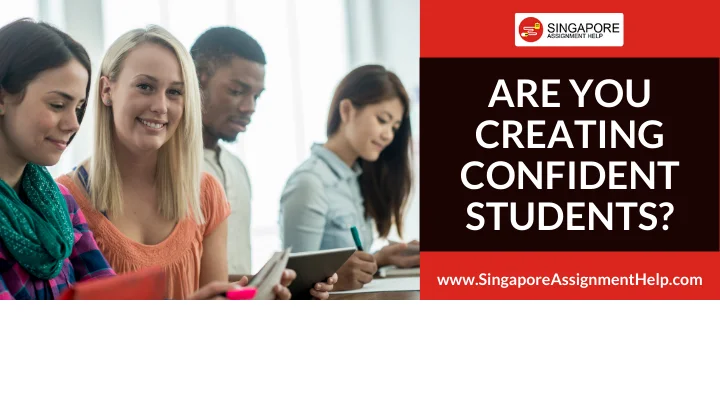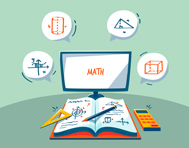Are You Creating Confident Students?
One approach to excellent teaching is facilitation: decentering yourself. Standing to the side, out of the students’ method and moving to more of a constructive role. And one critical element in such a strategy is students’ confidence and self-efficacy.
The key difference between confidence and efficacy has to do with the application. Confidence which is more of a general and persisting belief about the self, applying to a variety of spheres (school, relationships, etc.) This can also be resolved within an academic framework as well: the belief that one can pass tests, participate in discussions, finish and hand the work on time, and so on.

Self-efficacy is alike and can be thought of as confidence in a specific area. For example, a learner may be confident about school as a sense of self-efficacy regarding completing academic work or forging relationships with companions and teachers. These minor occurrences of effectiveness can lead to increased confidence.
In the classroom, teachers apparently look for both: self-efficacy and confidence, and realize the rigid relationship between the two. Just put, students that lack of confidence or a powerful sense of self-efficacy are far less possibly to self-direct themselves in their learning, or to fulfill a teacher’s request.
Signs that show the students are self-reliant and confident
Students own belief about their chances for successful achievement of a goal factor massively in their success. Self-confident and efficient students can persevere in the face of barriers and challenges. In a classroom of 30+ students, the kind of communication between student and teacher that reveals the changing and fluctuating levels of confidence and efficacy is difficult. However, there are some signs you can look for that can highlight their growing or decaying belief levels about their ability.
Five signs of a tempting and confident student-
- They complete work with high-quality standard- This one is the simplest to see. Students that lack confidence and self-efficacy do not complete work, much less do so with quality (a troublesome word here that we will just leave alone for now). While a bit obvious, more students doing better work are a sign of confidence.
- Confident students put better questions- Students that lack confidence may ask about the due dates, assignment details, or scoring criteria. While sure students will ask about possible extensions of the assignment task, query about the teacher’s personal choice for resources, instantly start pitching thesis ideas or ask questions that get at the essence of the assignment.
- They change off the studying ideas- Confident students take their stories, theories, resources and other academic fodder and run with it- perhaps even changing the assignment in the process. While this appears like a simple thing, shifting from “what does the professor want me to do here?” to what is the most striking about this content and how should I respond? is a crucial change.
- They expect different feedback- As students grow in confidence; they will want different feedback- something other than letter grades and quick notes in the margins. In short, they will ant learning feedback that is meaningful and personal to them. All learners need this sort of feedback, but confident, and self- efficacious students are more likely to recognize their needs, advocated for themselves, and establish a bond with the teachers that help them to improve.
- They are anxious and preventative- As described above; confidence encourages awareness, action, and general advocacy. While this could also be proof of a competitive student, an organized student, or a student being pushed to achieve by some external force, confidence can be alone learners to look forward, anticipate obstacles, and be pre-emptive in their navigation.
Hire Professional Singapore Essay Writers to Write Academic Assignments
Conclusion
While the above are not necessarily proof of trust and self-efficacy, little is. Even the most obviously confident learner could be pretending these tricks to mask insecurity and uncertainty. Eventually, the goal of such confidence is a comfortable student that genuinely understands content, rather than faith for the sake of confidence.
The role of trust and self-efficacy in learning is deep, but not fully understood. Neither can substitute for content mastery, but they almost always precede it.Students can also avail assignment help services from the experts of SingaporeAssignmentHelp.com at an affordable price. By taking online academic help from our experts students gain confidence and score well.











